In My Life This Week:
I've enjoyed watching my children fall more in love with our new dog, Rudy. Even Paul, who isn't an animal lover, makes sure he spends time with Rudy every day, though not as much as Mary or Peter, who cuddle with Rudy like he's their newborn, cherished baby.
One thing disappoints Peter, who is Rudy's main caretaker: Beagles do not fetch. Peter's had dreams for years of playing fetch with a canine best friend. When he researched Beagles, it just didn't come up. I think he just assumed that all dogs fetch, and my husband and I, not being animal lovers, had no idea to the contrary.
I used Peter's disappointment to point out that someday there will be things he doesn't like about his wife and children, but nevertheless, he can't trade them in for a more attractive model. Loving people the way they are, not for what we want them to be, is about courage and self-sacrifice, and it's the difference between a legacy of love and a legacy of self-indulgence. Self-serving pursuits are usually a mirage that just lead to more emptiness.
I didn't think I'd ever say this about a dog, but I love Rudy too. You can't not love this dog. He's the sweetest little guy. He gets right up on our laps and looks deeply into our eyes, almost like he's silently saying "I love you". Then he tries to give us doggy kisses, which we've not taken a fancy to yet.
In Our Homeschool This Week:
Writing Notes: As much as my boys sometimes whine their way through writing, they have a flare with words and use good sentence structure, and they combine sentences well. I often tell them they're both good writers, and I give them specific examples from their work to back up my praise. It's been slow, but today I began to feel the praise efforts have paid off. "I know I fuss a lot about writing, Mommy, but I actually like it, and I even think I'm pretty good at it."
Of course, our assignments this week may have something to do with that. When the written narration required of them comes from a fictional story (twice this week it was Beatrix Potter), then the whining is light or non-existent. But if they have to narrate something about the French Revolution, or about Joan of Arc, they feel inadequate and the whining starts.
Going to college later will entail both types of writing. They have to be able to respond to both fiction and non-fiction comfortably. In most college classes there are numerous writing assignments, including sometimes the entire final exam. I am so grateful to be using Susan Bauer's writing resources. I feel they'll prepare my children well for what lies ahead. I don't use the resources exactly as Susan directs--I make it harder--but I still do no prep work at all.
Cheapest buying place is at christianbook, rather than the Peace Hill Press website, which is owned by Susan Bauer and her mother, Jessie Wise Bauer.
Sonlight Core F notes: The boys are reading Teresa of Calcutta, finishing up India, and have started a book about Saudi Arabia called Ali and the Golden Eagle by Wayne Grover. Our Sonlight Core F package has us studying the middle east for the next few weeks.
Overview of Ali and the Golden Eagle:
An American working in Saudi Arabia befriends a boy from a remote village and helps him train an eagle to hunt.
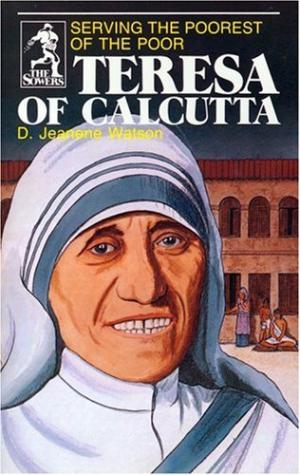
Overview of Teresa of Calcutta: The inspiring and challenging story of Mother Teresa who, for more than 40 years sought to be "the arms of Christ" to the poorest of the poor in the slums of Calcutta.
An unlikely hero who went against the grain of our me-first culture.
Notes about our year: It's been a wonderful ride this year for all of us, learning about the eastern hemisphere for the first time, really. Every year of Sonlight I'm sorry to see the year end. For us, the only problem is that we run out of books before the year is over, so I have to find more on the same topics. We're down to a handful left.
Or perhaps this year I will start the World History Part 1 (Core G) package early, since we already have the complete set on hand.
Trade Books to Share:
No Monkeys, No Chocolate, a new, 2013 book by Melissa Stewart and Allen Young
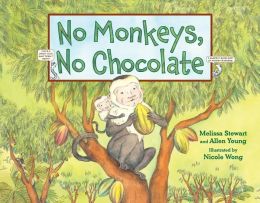
Overview:
Everyone loves chocolate, right? But how many people actually know where chocolate comes from? How it’s made? Or that monkeys do their part to help this delicious sweet exist?
This delectable dessert comes from cocoa beans, which grow on cocoa trees in tropical rain forests. But those trees couldn’t survive without the help of a menagerie of rain forest critters: a pollen-sucking midge, an aphid-munching anole lizard, brain-eating coffin fly maggots—they all pitch in to help the cocoa tree survive. A secondary layer of text delves deeper into statements such as "Cocoa flowers can’t bloom without cocoa leaves . . . and maggots," explaining the interdependence of the plants and animals in the tropical rain forests. Two wise-cracking bookworms appear on every page, adding humor and further commentary, making this book accessible to readers of different ages and reading levels.
Back matter includes information about cocoa farming and rain forest preservation, as well as an author’s note.
Talk about living science books! This is wonderfully written. Very engaging and fascinating.
______________________________
Mumbet's Declaration of Independence by Gretchen Woelfle (Brand new, 2014 book)


Synopis: "All men are born free and equal." Everybody knows about the Founding Fathers and the Declaration of Independence in 1776. But the founders weren't the only ones who believed that everyone had a right to freedom. Mumbet, a Massachusetts slave, believed it too. She longed to be free, but how? Would anyone help her in her fight for freedom? Could she win against her owner, the richest man in town? Mumbet was determined to try. Mumbet's Declaration of Independence tells her story for the first time in a picture book biography, and her brave actions set a milestone on the road toward ending slavery in the United States.
______________________________
Edwardo The Horriblest Boy in the Whole Wide World by John Burningham
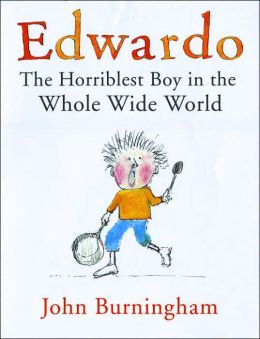
Overview: Edwardo is an ordinary boy who does his best to live up to grown-ups' expectations. So when they rant at him for being the clumsiest, noisiest, nastiest, cruelest, messiest, and dirtiest boy in the whole wide world, he becomes all those things with a vengeance, thus earning the title of the horriblest boy in the whole wide world. How Edwardo becomes the nicest boy in the whole wide world will be appreciated by ordinary little boys everywhere. John Burningham's amusing illustrations bring a lighthearted touch to the power of positive reinforcement.
This book is a wonderful reminder for every parent about choosing words carefully. They can speak so much life into our children's hearts, or so much heartache. The single most important parenting strength, in my opinion, is having sufficient control over our words.
______________________________
Grandmama's Pride by Becky Birtha
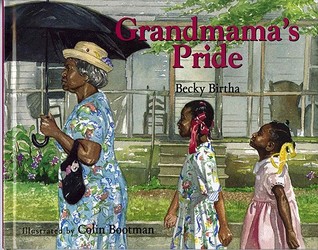

This book is a wonderful reminder for every parent about choosing words carefully. They can speak so much life into our children's hearts, or so much heartache. The single most important parenting strength, in my opinion, is having sufficient control over our words.
______________________________
Grandmama's Pride by Becky Birtha

Kirkus Reviews:
This is one of the best books I've encountered about the pre-Civil Rights Law South. Bittersweet indeed. I cried the last half of the book. A wonderful living history book for your elementary students.
Young African-American Sarah Marie travels by bus from her Northern home to the South to visit her proud grandmother, both before and after segregation. Her first-person narrative conveys wide-eyed wonder, and each of the superbly detailed watercolor illustrations is a short story in itself. Sarah Marie and her little sister experience the fun of making paper dolls and playing on a rope swing and sewing with Grandmama and their Aunt Marie, but also visit a lunch counter and bus station torn by segregation. When she returns a year later, the separate bus station bathrooms have been eliminated and Grandmama's public face changed from a proud scowl to a warm smile. Bittersweet nostalgia and a gentle introduction to an important and painful piece of our national past. A lengthy author's note gives the story a helpful historical context. (Picture book. 7-10)
This is one of the best books I've encountered about the pre-Civil Rights Law South. Bittersweet indeed. I cried the last half of the book. A wonderful living history book for your elementary students.
____________________________
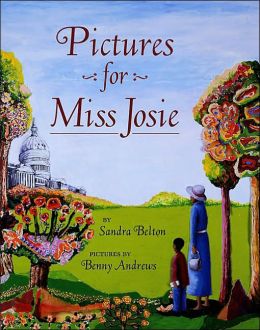
Overview: This remarkable picture book tells the story of Josephine Carroll Smith (Miss Josie) and a young artist who, like many in real life, became one of her almost-sons. It's a story that starts with a train trip to a faraway city; it's a story about taking chances, and making friends, and believing in oneself.
Throughout her life Miss Josie was like a giant standing in front of the sun. Her achievements on the national stage were notable -- she was responsible for outlining the boundaries for the integration of the Washington, D.C., public schools. But it is her spirit and influence on a personal scale that this book celebrates. Miss Josie reminded the generations of young black men who walked through her door and stayed in her home to believe in themselves and all they could become. They did.
Illustrated with compelling collage paintings by fine artist Benny Andrews, Sandra Belton's intimate and inspirational story pays tribute to the much-loved Miss Josie.
When his father first takes him to meet Miss Josie, a young boy is somewhat intimidated by her, but through the coming years he comes to treasure her friendship and support and passes on his love of her to his own son. Based on the life of Josephine Carroll Smith.
I love this book because it reminds us to invest our hearts and lives into our young people, whether our own, our neighbor's, those in our church, those we sponsor, etc. Young people represent the future, yes, but they're also very important to Jesus, and what His heart bleeds for, ours must bleed for too.
Homeschooling Advice to Share (literature versus skills):
It's so tempting to over teach, buying so much curriculum our heads spin. Knowing what to concentrate on is most of the battle, because clearly, we can't do it all well.
Those who are parts-to-whole thinkers tend to emphasize the building blocks (skills), rather than the whole (a piece of literature). For example, they spend more time on grammar and related skills, than they do on putting many books into their children's hands and hearts, thinking that the books themselves can't do the teaching.
I have been teaching either first graders or my own children since 1991, and I can tell you that no matter the learning style, novels and picture books are outstanding teachers. Whatever skill work you assign, don't let it steal too much of your child's day (15 - 20 minutes is sufficient). Children should be reading an hour or more a day, and that doesn't include reading they do on skill worksheets. For younger children, break this hour up into 15 minute increments, if necessary.
And parents should be reading to children at least 30 minutes a day, in addition to the reading the children do independently. I know it's hard to think that just reading is doing your child so much good, but time and again, I have seen this work...for every child.
Struggling readers may need more time, and they need the parent to read aloud more minutes each day, but don't assume that the slow progress means you need to invest in a bunch of skill-related curriculum. Be patient with your slower learners. Worrying or getting uptight with them is the worst thing we can do. They will get it with time, and with quality literature invested into their hearts and minds. The whole language of books is something our brains respond to strongly, but sometimes the payoff can take a few years. No one ever learned to talk by doing skills worksheets, and similarly, no one learns to read this way either. Language input = language output.
You know the child who utters few to no words before two, and then starts speaking in sentences? This is similar to the child who doesn't read independently by six or seven as expected, but soon after, they begin to read beautifully, and write well too. Trust me on this and get more books, not more worksheets. (I am no expert on dyslexia, but other learning disabilities are represented in my home, and worksheets have not helped. Literature has made all the difference.)
Our Gratitude List was shared in yesterday's Thankful Thursday post.
Quotes to Share About Children's Literature:
“A childhood without books – that would be no childhood. That would be like being shut out from the enchanted place where you can go and find the rarest kind of joy.”
― Astrid Lindgren
“Children's literature as a literary aberration or at best a minor amusement is a notion held most strongly by people who read the fewest children's books. I think it was Ruth Hill Viguers who compared this attitude with asking a pediatrician when he's going to stop fooling around and get down to the serious business of treating adults.”
― Lloyd Alexander
“In this modern world where activity is stressed almost to the point of mania, quietness as a childhood need is too often overlooked. Yet a child's need for quietness is the same today as it has always been--it may even be greater--for quietness is an essential part of all awareness. In quiet times and sleepy times a child can dwell in thoughts of his own, and in songs and stories of his own.”
― Margaret Wise Brown
“Oh, yes," nodded Pollyanna, emphatically. He [her father] said he felt better right away, that first day he thought to count 'em. He said if God took the trouble to tell us eight hundred times [in the Bible] to be glad and rejoice, He must want us to do it - SOME.”
― Eleanor H. Porter, Pollyanna
“Be generous with your smile and try not to frown.
And you will see my children; your smile will never let you down ☺” ― Benny Bellamacina, The King of Rhyme
“Come, my child," I said, trying to lead her away. "Wish good-bye to the poor hare, and come and look for blackberries."
"Good-bye, poor hare!" Sylvie obediently repeated, looking over her shoulder at it as we turned away. And then, all in a moment, her self-command gave way. Pulling her hand out of mine, she ran back to where the dead hare was lying, and flung herself down at its side in such an agony of grief as I could hardly have believed possible in so young a child.
"Oh, my darling, my darling!" she moaned, over and over again. "And God meant your life to be so beautiful!”
― Lewis Carroll, Sylvie and Bruno
“All their life in this world and all their adventures in Narnia had only been the cover and the title page: now at last they were beginning Chapter One of the Great Story, which no one on earth has read: which goes on for ever: in which
every chapter is better than the one before.” ― C.S. Lewis
Thank you for reading, and how was your week, friends?


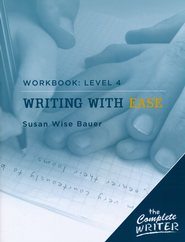


2 comments:
Love the book recommendations; I requested two from our library for my 9YO.
Thank you for leaving a comment, Becca. I am glad you found something useful here!
Post a Comment